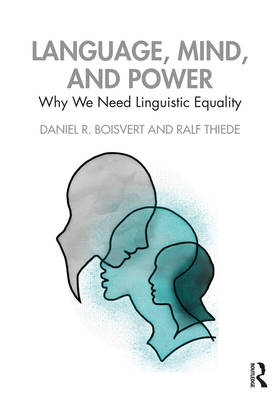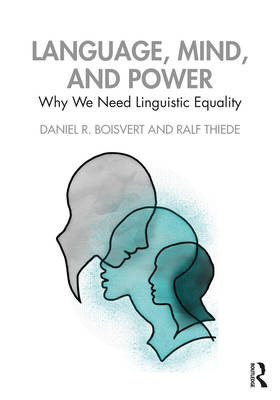
- Retrait gratuit dans votre magasin Club
- 7.000.000 titres dans notre catalogue
- Payer en toute sécurité
- Toujours un magasin près de chez vous
- Retrait gratuit dans votre magasin Club
- 7.000.0000 titres dans notre catalogue
- Payer en toute sécurité
- Toujours un magasin près de chez vous
Language, Mind, and Power
Why We Need Linguistic Equality
Daniel R Boisvert, Ralf ThiedeDescription
Language is a natural resource: Power and vulnerability are associated with access to language, just as to food and water. In this new book, a linguist and philosopher elucidate why language is so powerful, illuminate its very real social and political implications, and make the case for linguistic equality--equality among languages and equality in access to/knowledge of language and its use--as a human right and tool to prevent violence and oppression. Students and instructors will find this accessible, interdisciplinary text invaluable for courses that explore how language reflects power structures in linguistics, philosophy/ethics, and cognitive science/psychology.
Spécifications
Parties prenantes
- Auteur(s) :
- Editeur:
Contenu
- Nombre de pages :
- 190
- Langue:
- Anglais
Caractéristiques
- EAN:
- 9780367224400
- Date de parution :
- 10-06-20
- Format:
- Livre broché
- Format numérique:
- Trade paperback (VS)
- Dimensions :
- 180 mm x 251 mm
- Poids :
- 408 g

Les avis
Nous publions uniquement les avis qui respectent les conditions requises. Consultez nos conditions pour les avis.






